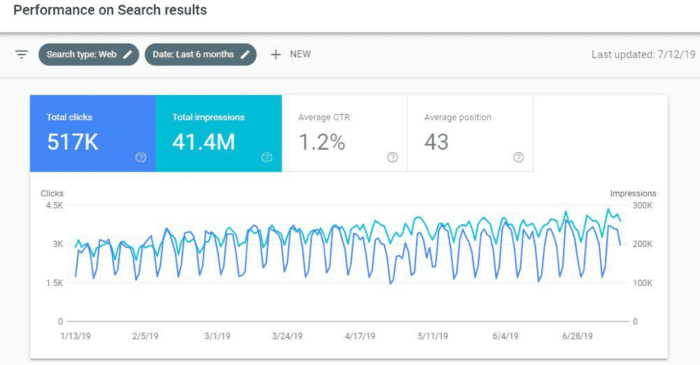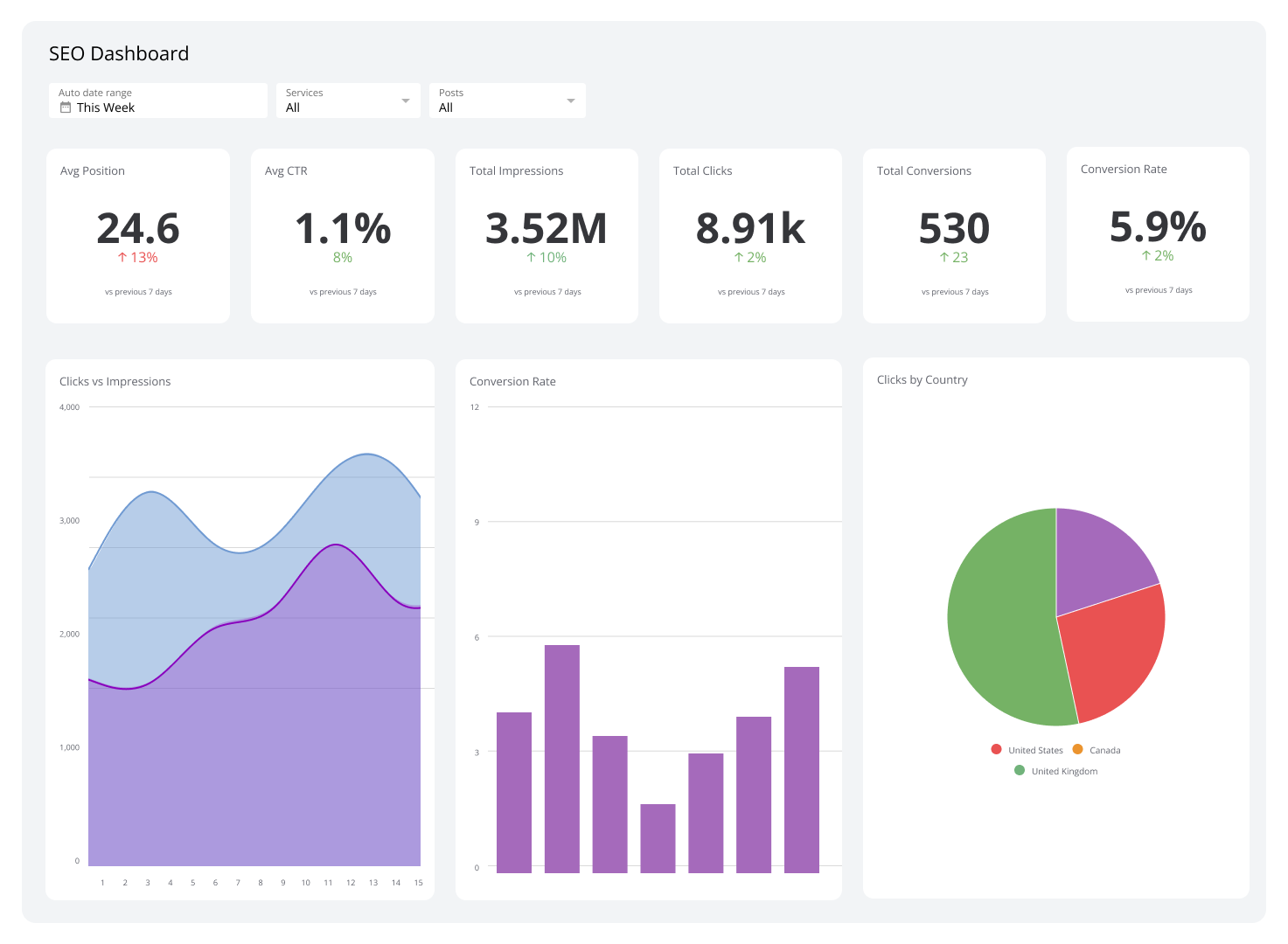Measuring SEO performance involves tracking key metrics such as organic traffic, keyword rankings, backlinks quality, user engagement, and technical SEO factors, then continuously optimizing based on these insights to improve search visibility and ROI.
To measure SEO performance effectively:
-
Track core SEO KPIs like total clicks (organic traffic), keyword rankings, referring domains (backlinks), indexed pages, and Core Web Vitals (page speed and user experience metrics) using tools such as Google Search Console, Google Analytics, and rank tracking tools.
-
Analyze user engagement metrics including bounce rate, pages per session, and conversion rates to assess how visitors interact with your site and whether SEO efforts translate into business goals.
-
Benchmark against industry standards and competitors to set realistic goals and identify areas for improvement. Use historical trends and competitor analysis to contextualize your performance data.
-
Monitor technical SEO factors such as page load time, mobile-friendliness, structured data, and Core Web Vitals (Largest Contentful Paint, Interaction to Next Paint, Cumulative Layout Shift) to ensure optimal user experience and comply with search engine ranking factors.
-
Use a combination of lab data and real user monitoring (RUM) to get a comprehensive view of website performance, especially for mobile users.
For continuous optimization:
-
Regularly review SEO metrics to identify what’s working and what isn’t, then refine keyword strategies, improve content quality, enhance technical SEO, and build high-quality backlinks accordingly.
-
Set performance budgets and goals (e.g., page load time under 3 seconds) and apply the 28-day rule for Core Web Vitals to track consistent performance over time.
-
Conduct A/B testing or compare date ranges before and after SEO changes to measure impact accurately and isolate effects.
-
Adapt to algorithm updates and seasonality by continuously monitoring SEO performance and adjusting strategies as needed.
In summary, measuring SEO performance is a multi-faceted process involving quantitative tracking of traffic, rankings, backlinks, user behavior, and technical health, combined with qualitative analysis and ongoing adjustments to optimize results and maximize ROI.





